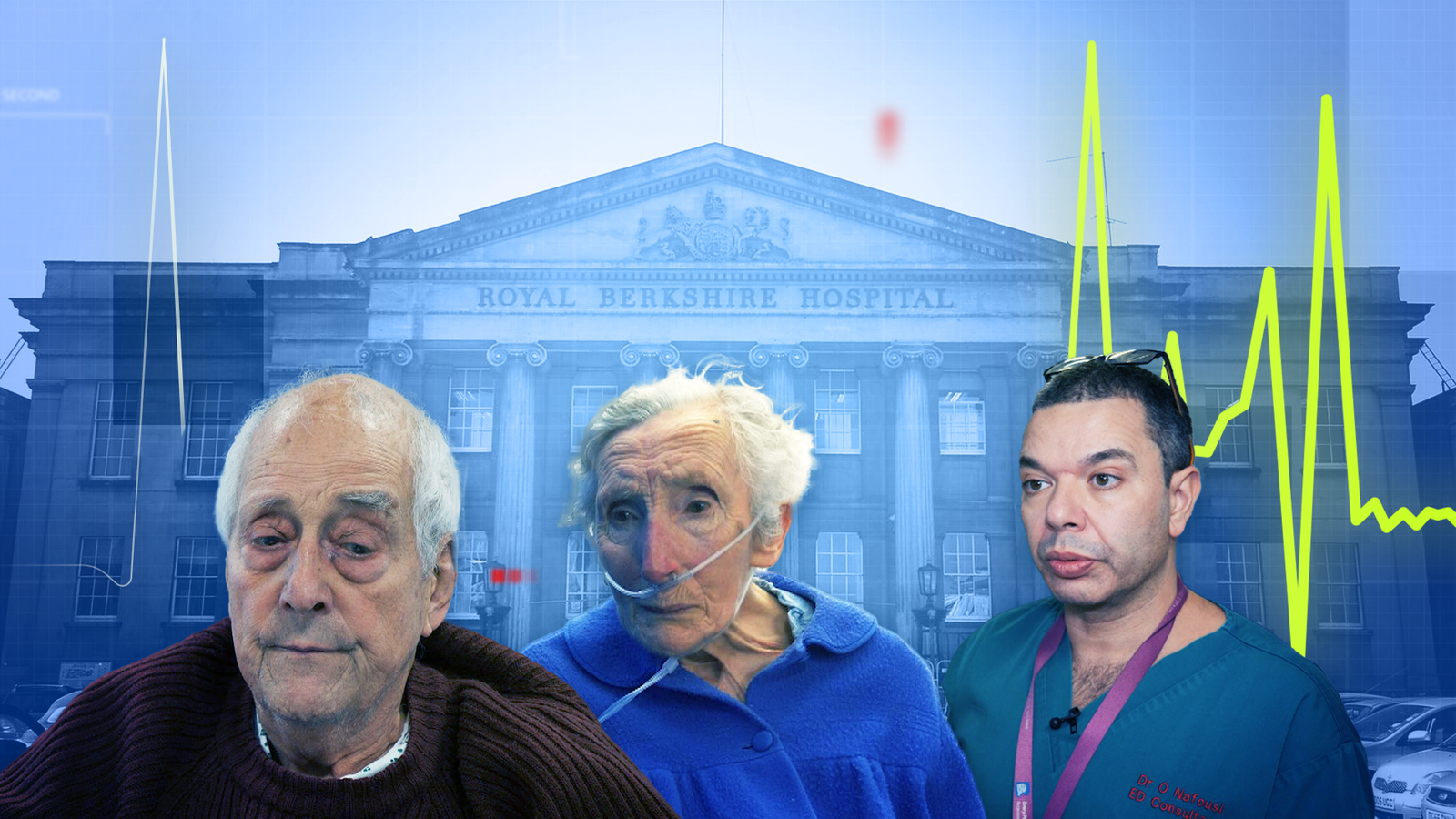U.K News
‘We are absolutely full’: This hospital is outperforming most – but it is still on its knees

The State of the NHS: A Case Study Through Royal Berkshire
Marina Strange, a 90-year-old living alone, experienced her third heart attack in two years and waited two hours for an ambulance—a wait she surprisingly found impressive. This incident, while alarming, reflects the current state of the NHS, where such delays are becoming commonplace. Royal Berkshire NHS Trust, where Marina was treated, operates near national averages, indicating her experience is typical for 2025.
Overcrowded Hospitals and Winter Pressures
In January, Royal Berkshire’s respiratory ward was overwhelmed, with bed occupancy at 99% due to a surge in flu cases and other viruses. This situation highlights the broader winter pressures on the NHS, where bed occupancy averages 94.7%, exceeding the recommended 92%. Such high occupancy rates, seen across England, severely hinder efficient patient flow and emergency care.
Emergency Department Crisis
The emergency department at Royal Berkshire faces a daily influx of over 500 patients, often exceeding capacity. With 44.2% of patients waiting over four hours, some enduring waits of more than 15 hours, it’s clear that A&E services are in crisis. These delays have contributed to 23,000 excess deaths, underscoring the severe impact of overwhelmed emergency care.
Ambulance Delays: A Ripple Effect
Ambulance handover delays, averaging 25 minutes at Royal Berkshire and 40 minutes nationally, exacerbate the crisis. These delays not only prolong response times but also reduce ambulance availability for new emergencies, affecting patient care and outcomes significantly.
Infrastructure Challenges and Bed Shortages
Infrastructure issues at Royal Berkshire, including unusable buildings, highlight the NHS’s structural problems. Plans for a new hospital, delayed until 2037, are costly and uncertain. Bed blockages, like Colin Waters’ case, where patients ready for discharge await transfers, contribute to logistical nightmares, exacerbating waiting lists for operations and emergency care.
Health Anxiety and Long-term Implications
Post-COVID health anxiety has surged, overwhelming GPs with appointments. Dr. Sharma notes increased anxiety-related visits, while Dr. Mafousi observes unnecessary emergency visits driven by fear. This anxiety, coupled with prolonged waits, strains the NHS further, leading to a cycle of delayed care and potential health deterioration.
In conclusion, the NHS faces unprecedented challenges, from overcrowding and delays to infrastructure woes and anxiety-driven demand. Royal Berkshire’s story is a microcosm of a system in crisis, emphasizing the urgent need for systemic reform to meet growing healthcare demands effectively.
-

 Money3 days ago
Money3 days agoConsumer Financial Protection Bureau Adds Error Message To Home Page
-

 Money2 days ago
Money2 days agoWinning Content Strategies For Wealth Managers
-

 Australia1 day ago
Australia1 day agoTropical Cyclone Zelia intensifies to category 2 storm
-

 Asia1 day ago
Asia1 day agoWhat you need to know about 2024 YR4, the asteroid that could hit Earth in about eight years’ time
-

 Entertainment19 hours ago
Entertainment19 hours agoPrince Harry and Meghan Markle’s Best Moments and Photos From the 2025 Invictus Games
-

 Australia13 hours ago
Australia13 hours agoTropical Cyclone Zelia intensifies to category five system off Pilbara coast
-

 Politics1 day ago
Politics1 day agoDozens of religious groups sue to stop Trump admin from arresting migrants in places of worship
-

 Entertainment3 days ago
Entertainment3 days agoEvery Celebrity Who Attended the 2025 Super Bowl: A Guide to the A-Listers at the Big Game

















